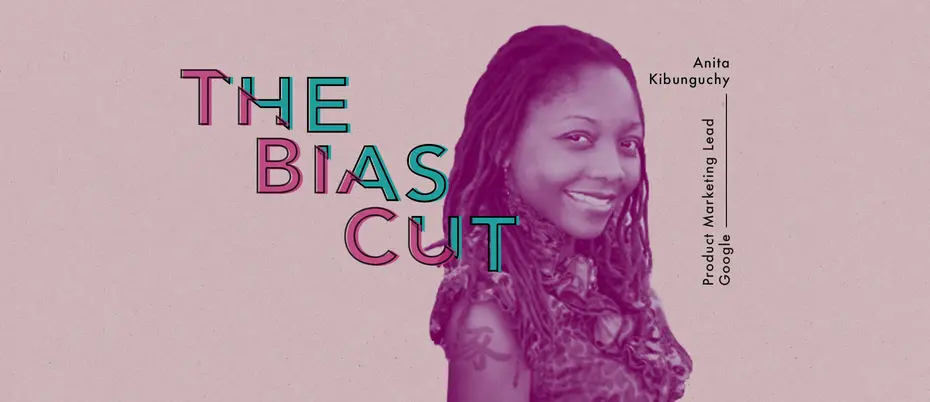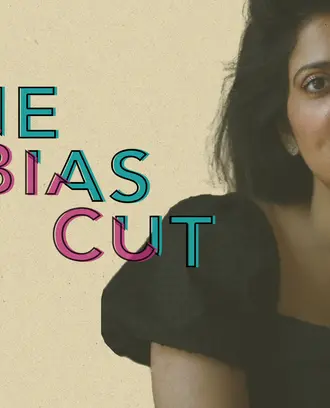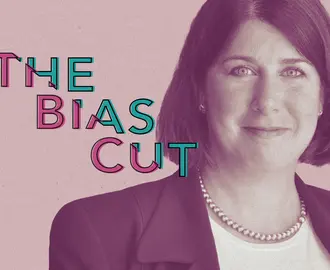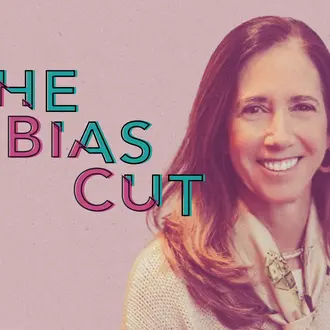The Bias Cut
This Google marketing pro sees diversity as a retention issue
“All I can hope for is that we continue doing more to hire and retain diverse talent, because diversity does bring upon creativity and is simply better for business overall.”
A 2020 women’s leadership study from LeanIn.org and McKinsey & Co. found that American women held less than 40% of corporate management positions, and women continue to fight underrepresentation when it comes to board positions and CEO roles. They also face gender bias, harassment, and opposition to their management styles. Here’s how one MIT Sloan alumna has pushed back on those statistics and used what she’s learned along the way to help those behind her.
Anita Kibunguchy, MBA ’15, product marketing lead at Google
In what ways is your professional life as a woman in the workplace different from how you imagined it would be when you started your career?
I always knew going into tech that there would be very few of us, especially Black women. When I did my undergrad at Sacramento State, my management information systems classes had three women, and we all knew each other, hung out together, and did most of our projects together. In the class, I was the only Black person. MIT was a similar experience, too. Yes, the classes were diverse, but in my MIT Sloan cohort, I was the only Black person. I don't think I expected the workplace to be any different. All I can hope for is that we continue doing more to hire and retain diverse talent, because diversity does bring upon creativity and is simply better for business overall.
Who was an ally or mentor for you as you’ve navigated your career? What made that person stand out, and how specifically did they help you get to the next level of your professional development?
I've been lucky to have mentors all along from when I was young. My mother and grandmother are incredible, strong women who I look up to every day. My dad instilled truthfulness — he always said that the truth shall set you free.
Over time, I've met incredible people who've taken a chance on me. I've also had allies who've given me opportunities to grow, take on leadership positions, and let me be me. Most recently, two of my male, white bosses have come through for me, letting me lead a team and giving me the resources to do so. I am truly appreciative, because this is an opportunity of a lifetime, and not everyone is lucky to say so.
Certain industries are as male-dominated as ever. Where do you see progress in your own professional experience and how can we scale that throughout your industry?
With all the Black Lives Matter and other movements that took place in 2020, it was the first time you saw big tech companies really come out and make their voices heard about what was happening. All I can say is that it felt like a wake-up call, because people have been speaking of these injustices for a very long time. In the workplace, progress will come when we can hire diverse candidates and put structures in place to help them succeed and really soar. People always think it's only a talent issue, but it's more than that. Retention plays a big role. Because once you retain folks, then others see them at these workplaces and choose to join them. People want to go where they see others like them and where they feel like they belong. Otherwise, you're the token representative, and that is a huge burden to carry.
How do you support women coming up behind you?
Mentorship is one of the biggest gifts you can give someone coming up behind you. I have been lucky to help many people along the way. Because of this, I started a career advice services company called AdviceMavens whose aim is to connect, cultivate, and empower the community to advance their professional careers and personal lives. We believe that each one of us has something to give back to the community, whether from personal, educational, and/or professional experiences. I work with a lot of people to help guide them through resume, LinkedIn, and cover letter writing, as well as interview prep services.
What is the most difficult lesson you’ve learned in your professional life? In what unexpected ways did you grow from it?
Trust is a two-way street. I’ve seen this manifest itself in both my personal and professional life. It helps foster a common understanding and you will see teammates and bosses go above and beyond to get things done once trust is built. It also helps foster psychological safety, which is a big ingredient for successful teams. I learned this lesson the hard way a few years ago, and now with the teams I lead, I try to ensure we have trust built between us, including the bosses I report to.




